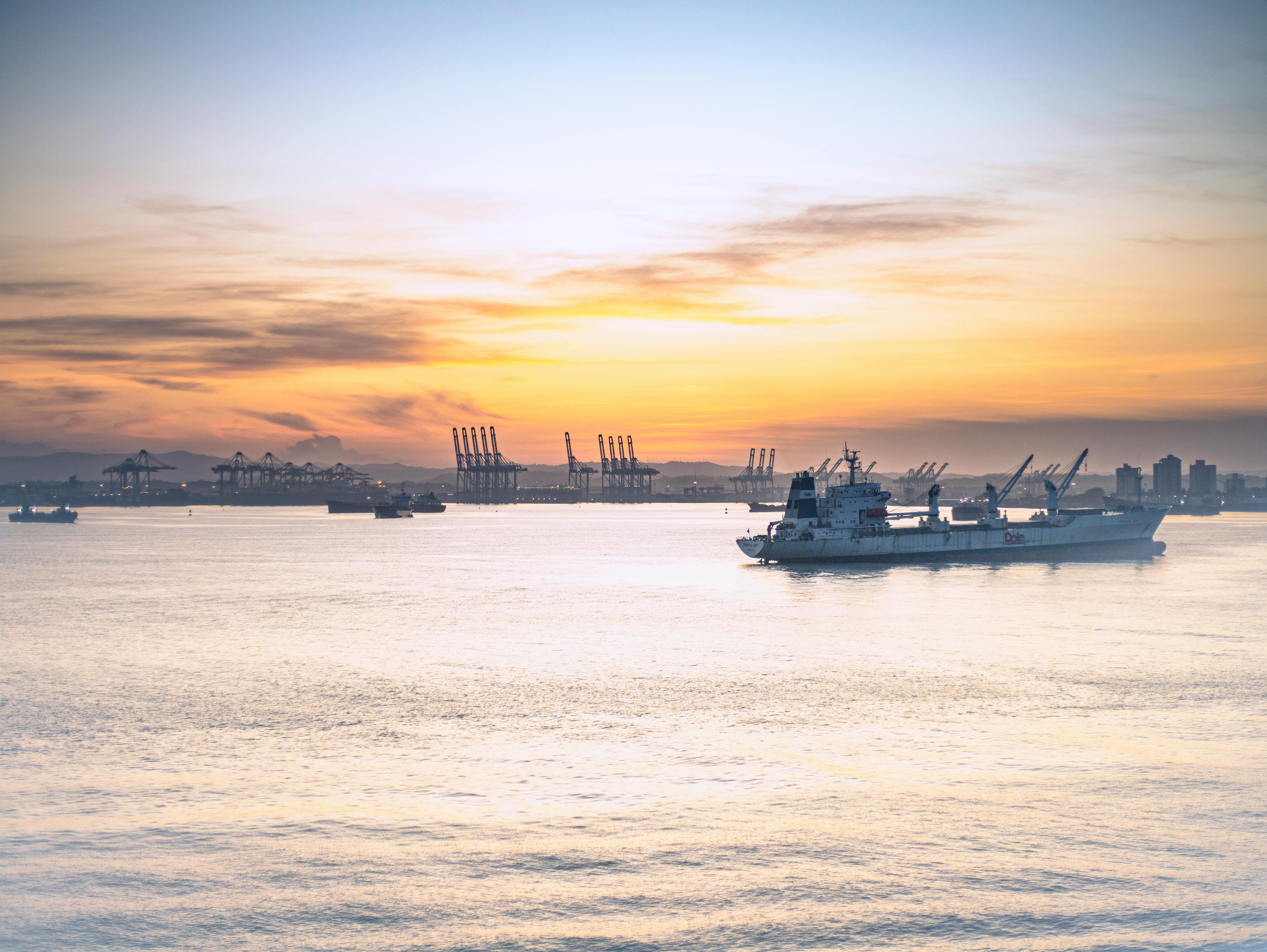In 1999, President Bill Clinton signed the Panama Canal Treaty with Panama, transferring sovereignty of the canal to the Panamanian government. However, the U.S. still maintains significant control over certain aspects of the canal's operation. This year marks the 25th anniversary of the treaty, highlighting ongoing tensions between the U.S. and Panamanian authorities regarding the canal's future direction. BlackRock, the world's largest asset manager, has struck a deal with CK Hutchison to acquire majority stakes in the ports of Balboa and Cristobal on either end of the Panama Canal. The acquisition aims to strengthen U.S. influence over the vital shipping route, potentially reducing Chinese influence and ensuring smoother passage for U.S. vessels. Despite initial opposition from some quarters, the move signals a shift towards greater U.S. involvement in the canal's management. This strategic alliance underscores the complex geopolitical dynamics surrounding the Panama Canal and highlights the evolving role of multinational corporations in shaping global shipping routes.
In today's business landscape, the Panama Canal remains a pivotal artery connecting the Atlantic and Pacific Oceans, facilitating global maritime trade and supporting significant portions of the world's GDP. The recent agreement between BlackRock and a consortium involving Hutchison Ports marks a strategic shift in the control of these vital waterways. This move underscores the increasing geopolitical tensions surrounding the Panama Canal, particularly concerning China's alleged influence.
The historical background of the Panama Canal dates back to the early 20th century, where the United States played a dominant role in its construction and operation until the mid-1990s. Following the Carter Administration's negotiations, the canal transitioned to Panamanian sovereignty, though concerns persist regarding potential Chinese involvement. The current agreement involves BlackRock acquiring a controlling interest in Hutchison Ports, a Hong Kong-based entity known for its extensive port infrastructure globally. This acquisition comes amidst ongoing disputes and tensions between the United States and China, making the canal's future uncertain.
From a financial standpoint, this deal represents a substantial investment opportunity for BlackRock, potentially leveraging its vast resources to enhance global logistics networks. However, the success of this venture hinges on whether Hutchison Ports can effectively manage and expand their operations post-acquisition. The challenge lies in ensuring that Hutchison Ports maintains the operational autonomy required to navigate complex supply chain challenges without compromising their ability to serve as terminal operators at ground level. Any disruption in this oversight could jeopardize the efficiency and reliability of the canal, leading to increased costs and disruptions for global businesses reliant on the Panama Canal.
Moreover, this deal highlights the evolving dynamics within the global shipping industry. As China continues to assert its influence across various sectors, including ports and transportation, maintaining a balance of power becomes increasingly important. The partnership between BlackRock and Hutchison Ports aims to mitigate these risks by focusing on sustainable development and innovation, thereby positioning themselves as leaders in the sector. This collaboration underscores the importance of diversifying investments beyond traditional borders, especially in regions facing heightened geopolitical scrutiny.
In conclusion, the recent acquisition of the Panama Canal by BlackRock and Hutchison Ports signifies a significant milestone in the evolution of global maritime governance. While this agreement promises enhanced stability and efficiency in global trade routes, it also raises questions about the sustainability and resilience of these critical infrastructures in the face of emerging geopolitical challenges. As the world grapples with balancing economic interests with national security concerns, the Panama Canal remains a focal point, illustrating the intricate interplay between commerce, geopolitics, and technology in shaping the modern global economy.
BlackRock’s Panamanian Ports Deal: A Strategic Move Amid Rising Geopolitical Tensions
In a significant move aimed at strengthening its global presence and ensuring strategic control over vital transportation routes, BlackRock Inc. has struck a landmark agreement with CK Hutchison, a prominent Hong Kong-based conglomerate. The deal involves the acquisition of two key ports—the Balboa and Cristobal terminals—located at either end of the Panama Canal. These ports are strategically located along the major shipping lanes connecting Asia and Europe, making them essential for global commerce.
The significance of this acquisition cannot be overstated. As the world grapples with geopolitical tensions and rising trade barriers, securing access to vital sea lanes becomes paramount. The Panama Canal, a critical artery for international trade, remains a focal point of contention between nations. The decision by BlackRock to secure these ports underscores its commitment to maintaining stable and efficient maritime routes, particularly given the ongoing scrutiny and regulatory measures imposed by certain nations.
Historical Context and Political Implications
Historically, the Panama Canal has been a contentious issue due to its dual sovereignty between the United States and Panama. However, after decades of negotiation and controversy, the treaty signed in 1999 handed over responsibility for the canal to Panama. Yet, the current administration has continued to raise concerns regarding China's influence over the canal, prompting a series of moves to secure alternative routes and ensure uninterrupted maritime trade.
BlackRock's involvement in this deal comes amid heightened geopolitical tensions, especially concerning the role of foreign investments in critical infrastructure projects. The acquisition of the ports by a multinational corporation like BlackRock reflects a broader trend where influential players seek to leverage their resources and expertise to maintain strategic advantages in vital sectors like transportation and logistics.
Financial Implications and Market Impact
From a financial standpoint, the $22.8 billion acquisition represents a massive investment in infrastructure development and diversification of revenue streams. The deal is expected to generate significant returns, primarily through increased toll revenues and improved operational efficiency. Moreover, the acquisition allows BlackRock to expand its global footprint and tap into emerging markets, further solidifying its position as a leading player in the asset management sector.
The move also positions BlackRock as a key player in the logistics and supply chain industry, leveraging its vast resources to manage complex supply chains and enhance overall logistical efficiencies. This partnership is likely to have far-reaching impacts on global supply chains, potentially reshaping the landscape of international trade and commerce.
Geographic Relevance and Future Prospects
Geographically, the acquisition affects multiple
In light of the recent announcement regarding the acquisition of the ports of Balboa and Cristobal on either end of the Panama Canal by BlackRock and a consortium of investors, this strategic move represents a significant milestone in the ongoing evolution of global logistics infrastructure. As previously discussed, the decision by CK Hutchison to sell its controlling interest in the Hutchison Ports group, which comprises 43 ports in 23 countries, underscores the broader trend of consolidation within the container shipping sector.
The acquisition of these ports by BlackRock and its partners signifies a shift in power dynamics between major players in the global supply chain. The fact that the consortium, consisting of BlackRock, Global Infrastructure Partners, and Terminal Investment Limited, has secured 90% interests in the Panama Ports Company, demonstrates the strength of BlackRock’s position in the market. This acquisition comes at a time when the United States faces increasing scrutiny over its involvement in the Panama Canal, particularly concerning allegations of Chinese influence and potential exploitation of the waterway.
The significance of this development extends far beyond the immediate financial gains associated with the acquisition. It highlights the growing importance of ports and logistics in shaping global trade patterns and geopolitics. As China continues to expand its presence in various regions, including the Western Hemisphere, the ability to effectively manage and control these vital nodes along the maritime route becomes increasingly critical.
Moreover, the acquisition aligns with broader trends in the global business landscape, where multinational corporations seek to optimize their supply chains and reduce costs through strategic investments in key logistical hubs. The combination of BlackRock’s extensive resources and expertise in managing complex portfolios with the robust infrastructure offered by the Hutchison Ports group positions the region to play a pivotal role in future global trade dynamics.
Looking ahead, the continued integration of ports and logistics systems across Asia-Pacific regions, driven by initiatives like the Belt and Road Initiative, promises to further enhance regional stability and promote economic growth. As the geopolitical climate surrounding the Panama Canal remains volatile, the ability of major players to maintain control over critical chokepoints like these will continue to be a focal point for policymakers and strategists alike.
It is imperative that stakeholders remain vigilant and proactive in navigating these evolving landscapes. The success of BlackRock’s acquisition strategy depends not only on its own capabilities but also on the effective coordination and cooperation among all parties involved in the logistics ecosystem. This collaboration will be essential in ensuring that the Panama Canal remains a reliable and efficient conduit for global commerce, mitigating the risk of disruptions caused by external influences.
As the 2020s unfold, it










